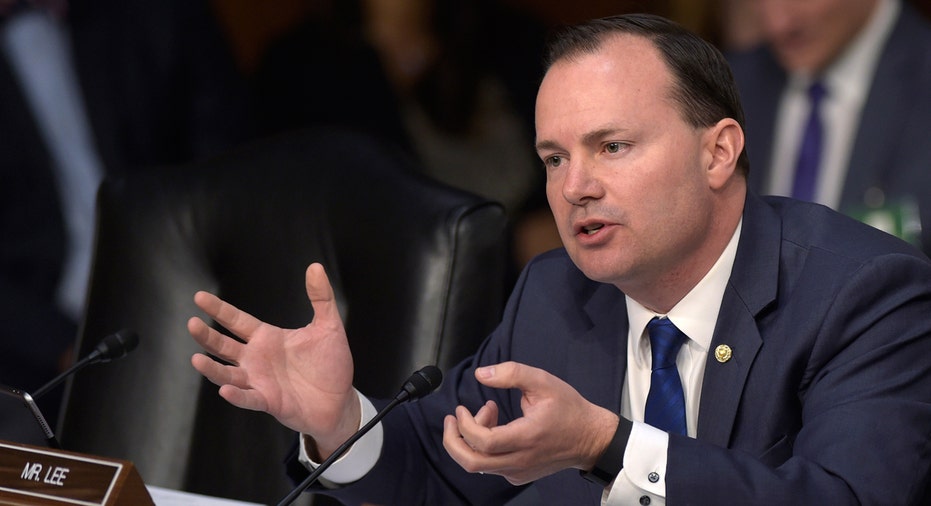Tax reform debate dividing GOP's key players

As President Donald Trump and Republican congressional leaders tout their tax reform plan, Sen. Mike Lee (R-Utah), a leading conservative, plans to fight for one of the more controversial pockets of the plan—eliminating the state and local tax deductions and keeping the United States deficit in check.
“I do support it [eliminating state and local loophole], otherwise we are just rewarding those states that have higher tax burdens,” Lee said in an interview with FOX Business.
Lee, a key GOP ally for the Trump administration, is taking the opposite side of some of his Republican colleagues including Rep. Peter King (R-N.Y.) who said last week that the tax reform plan must keep the state and local tax deduction. “Any tax reform legislation must retain the state and local tax deductions. Hard working New Yorkers must not be taxed twice,” King said in a statement to FOX Business.
New York, along with New Jersey and California, are considered high-tax states that give taxpayers a break with the deduction. About one-third of the value of the tax break, which in total is estimated to be $1.3 trillion in savings, is used by filers in these states according to a study by the nonpartisan Center for a Responsible Federal Budget.
After the immediate outcry, the White House appeared to scale back the promise of dropping the deduction as a way to pay for its tax reform plan. National Economic Council director Gary Cohn said the issue "is not a red line" in the upcoming talks with Congress on tax reform, during an interview with Bloomberg.
When asked if he would support a bill that didn’t eliminate the loophole, Lee said, “You know, I’m trying to be careful not to draw any lines in the sand and to not say ‘if it does have this I will vote for it and if it isn’t in there I won’t support it’”
Additionally, Lee is also worried that the Republican plan could add to the deficit and stunt U.S. economic growth.
“I think everybody is concerned about [adding to the deficit]. Everybody doesn’t want to put the federal government in a worse position. Everyone is worried about that. That’s one of the central questions behind this. How does this impact economic growth? How does it impact revenue? To what extent do those impacts have on the offset of economic growth?,” Lee said.
Lee is not alone in his concerns about the potential balloon impact on the deficit. Last week, Sen. Bob Corker (R-Tenn.) told NBC’s “Meet the Press” host Chuck Todd, that he would not support the final tax bill if it adds to the deficit.
“But if it looks like to me, Chuck, we're adding one penny to the deficit, I am not going to be for it, OK?... I'm sorry. It is the greatest threat to our nation. The greatest threat to our nation."
The impact to the deficit may be the wild card for tax reform. The nonpartisan Tax Policy Center released its analysis on the nine page Republican tax plan and found that the tax framework would add $2.4 trillion to the deficit and the federal debt would rise by $7.2 trillion over a decade.



















